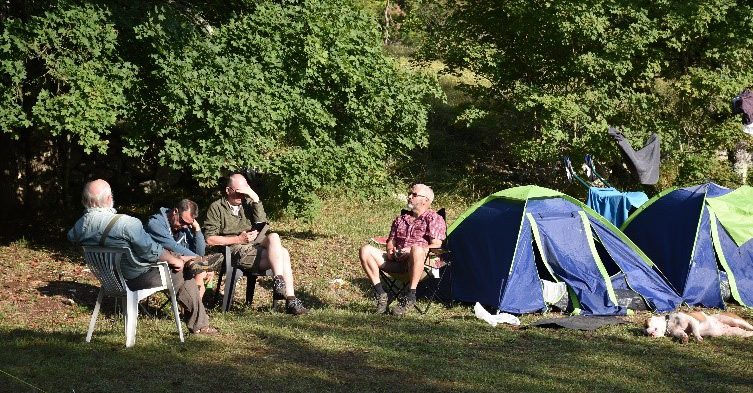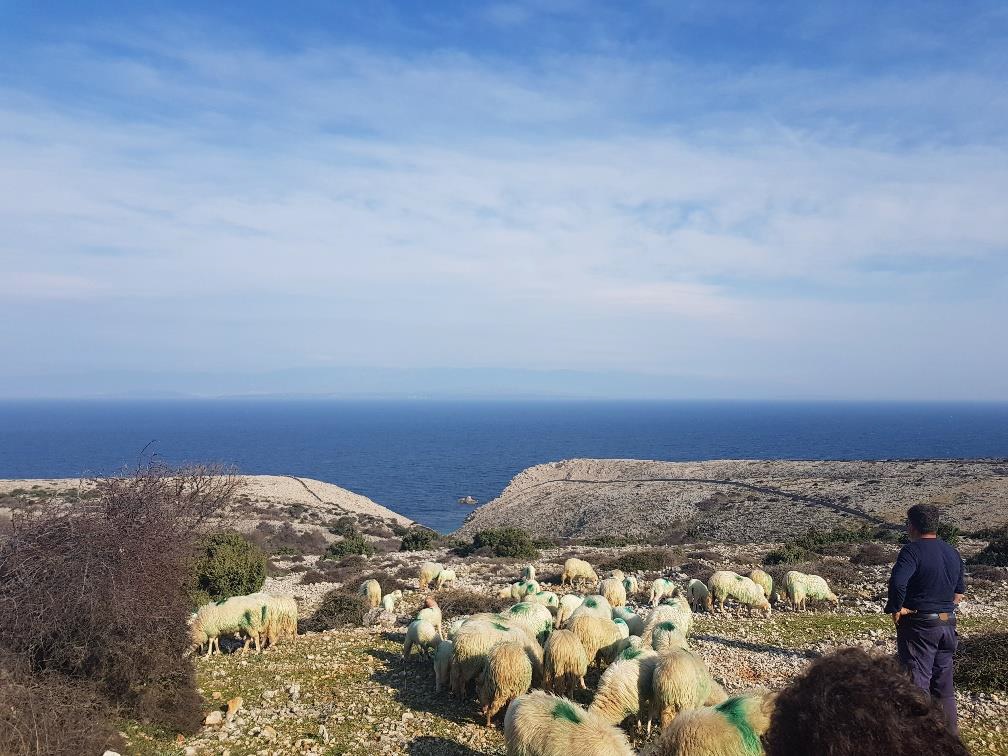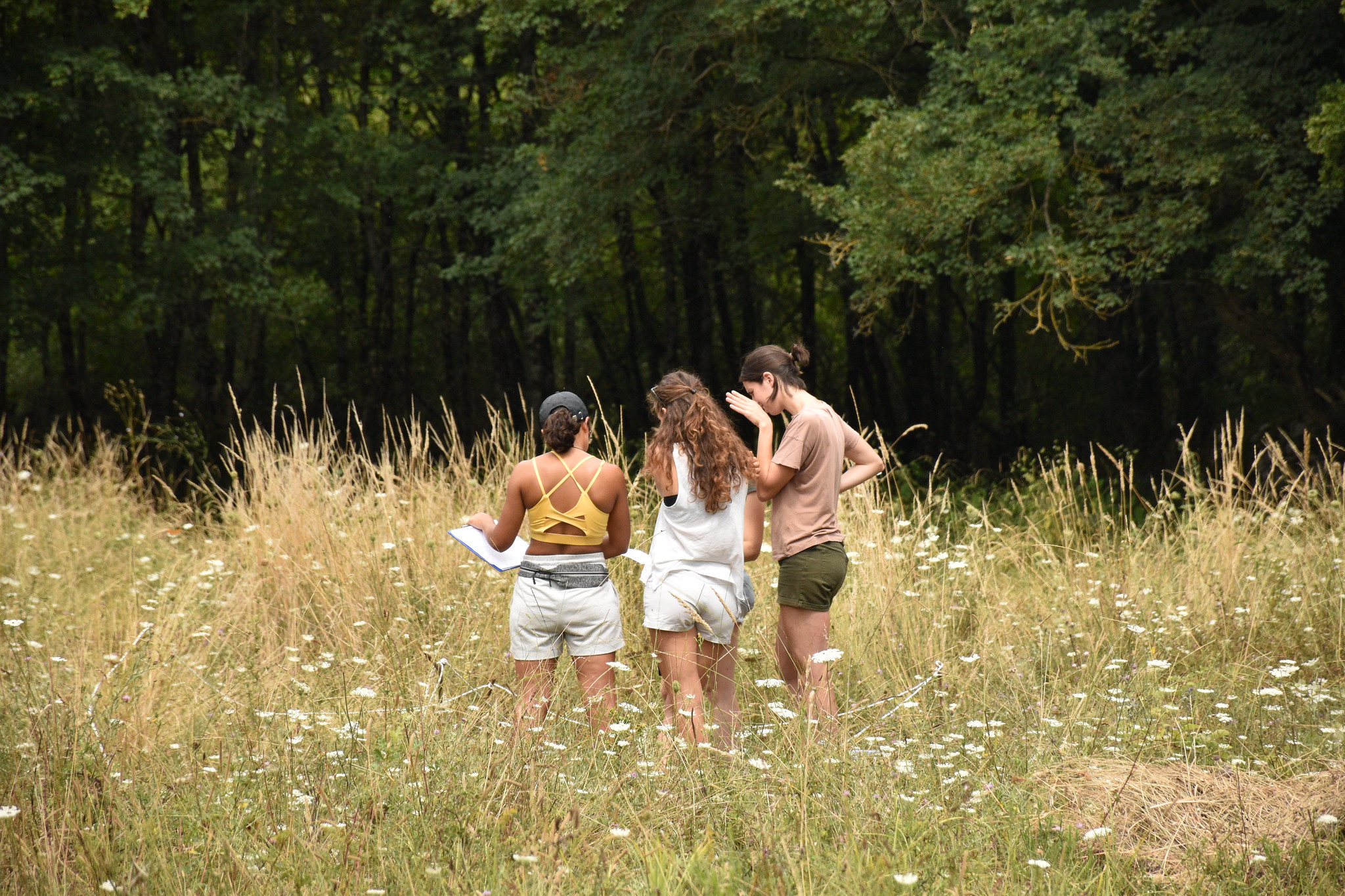You are invited to join the Učka 360 Ornithological Camp 2020! We need volunteers from the 19th August to the 4th October to help us with our ongoing ringing study of birds migrating through Učka Nature Park, Croatia. Here you will be able to get up close and personal with the birds moving through the Park, learn about their ecology, and have the chance to join in with the process of bird ringing. We ask that you help out with the general maintenance of the Camp, such as cooking and preparing food, putting up tents, and keeping things clean and tidy.
The Camp is run jointly by Association Biom, Association Bioteka, and the Public Institution of Učka Nature Park as part of the Učka 360 Project.Rovozna Pond is a very special location because it is the only permanent body of water in the whole Učka Nature Park. What does this mean? It means that during the hot summer and autumn when the other ponds and streams have dried out, all of the birds migrating through the Park must stop at Rovozna Pond to drink and bathe.
Once their breeding season is over in August, thousands of small birds begin to move through the Park on their southwards migration to warmer climates. With so many birds stopping in one place – Rovozna Pond – this is a fantastic opportunity for studying them by catching and ringing them.
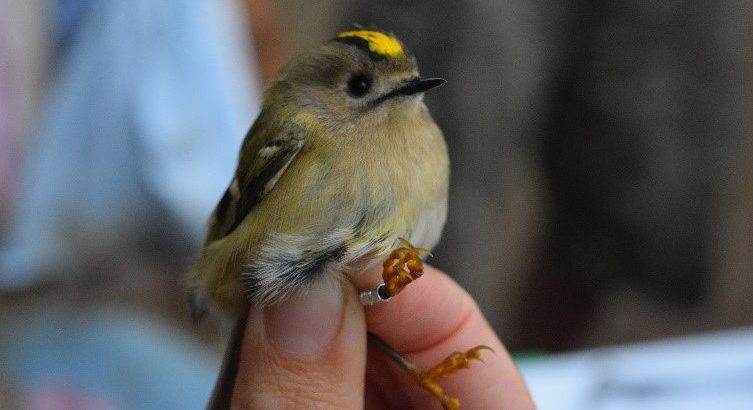 What is bird ringing?
What is bird ringing?
Bird ringing is a common ‘capture, mark, recapture’ method used for studying wild birds. It consists of catching birds – in this case in long nets called ‘mist nests’ – then fitting them with a specially designed metal leg ring with a unique number before releasing them again. Details of the bird, such as its species, weight, wing length, and age, are also recorded and all of the information is kept in a database. The aim is that if the bird is caught again somewhere else, the unique ring number can be read and the new details of the bird recorded.
Why do we ring birds?From recapturing ringed birds we can discover a vast range of information about them. We can learn about their migration routes – where they travel throughout the year and how they get there, how long they live for, changes in their weight which indicates their fat reserves, and many other things.
With this information, an assessment can be made about the quality of the habitat along the birds’ migration route, threats which they face, and changes to their distribution which can be used to inform future conservation and protection actions.
Who can ring birds?Bird ringing is very challenging and can be harmful to the birds if carried out incorrectly. As such, only highly trained and certified bird ringers are allowed to carry out bird ringing activities in Croatia. At the Camp, Association Biom staff with valid bird ringing certification will lead the ringing. Under the supervision of these highly experienced staff, volunteers might be able to assist with the ringing process if they can prove they are capable, learning about how to identify and handle birds them safely.
This is an excellent opportunity for individuals who are training for their bird ringing certification to gain experience, but you don’t have to be a bird ringer to join! This is also a great opportunity for those interested in birds to see them up-close.
Who is the camp open to?Everyone is welcome to join the Camp, regardless of your previous experience. All we ask is that you come cooperative, willing to work, and ready to have respect for our special place and the wild animals with which we will be sharing it. In exchange, we offer you the opportunity to experience bird ringing and learn about the plants, animals, and nature of Učka Nature Park.
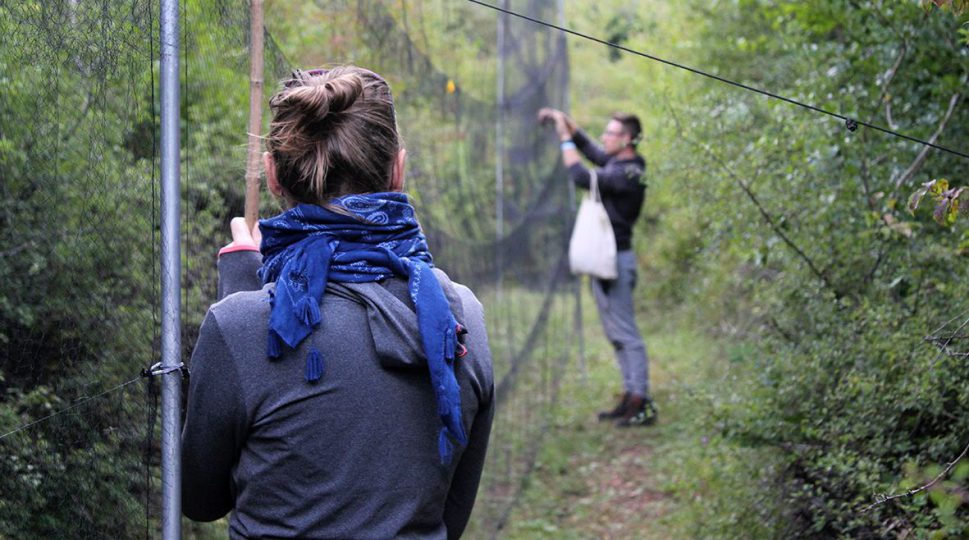 Information about the Camp
Daily schedule
Information about the Camp
Daily schedule
- We open the mist nets before dawn each day (usually around 0500) and then spend the morning checking for birds every 45 minutes. Between checks, the caught birds will be ringed and released. At 1100 we close the nets and have a break across midday until 1600. This break is free time and you can do whatever you like, although some days we may go to a nearby beach, go hiking, or hold interesting educational activities. From 1600 the nets are opened again and we will be checking them every 45 minutes and ringing birds until sunset.
- There are always a few available tents at the Camp location, provided by the organizers. We ask that you bring your own tent if you can, especially if you are planning a longer visit, because we only have a limited number of tents and would like to save them for those who really need them.
- Every few days we visit a nearby town to buy food supplies. Help with cooking, as well as collecting and chopping firewood is more than welcome! All food will be provided by the Camp organisers free of charge.
- Our water supply is limited and should be used carefully. There are no showers at the Camp, but you will be able to wash. We may occasionally use the public shower located at a nearby beach.
- The toilet facilities consists of a shovel, the forest, and a basic moveable ‘toilet chair’.
- We have limited electricity supply from a small solar panel array, so it is only suitable for charging small electrical equipment such as mobile phones or cameras.
- Mobile phone signal and internet coverage is present but mostly very weak and unreliable. Occasionally signal disappears completely at the Camp location and in that case finding it requires a short walk uphill.
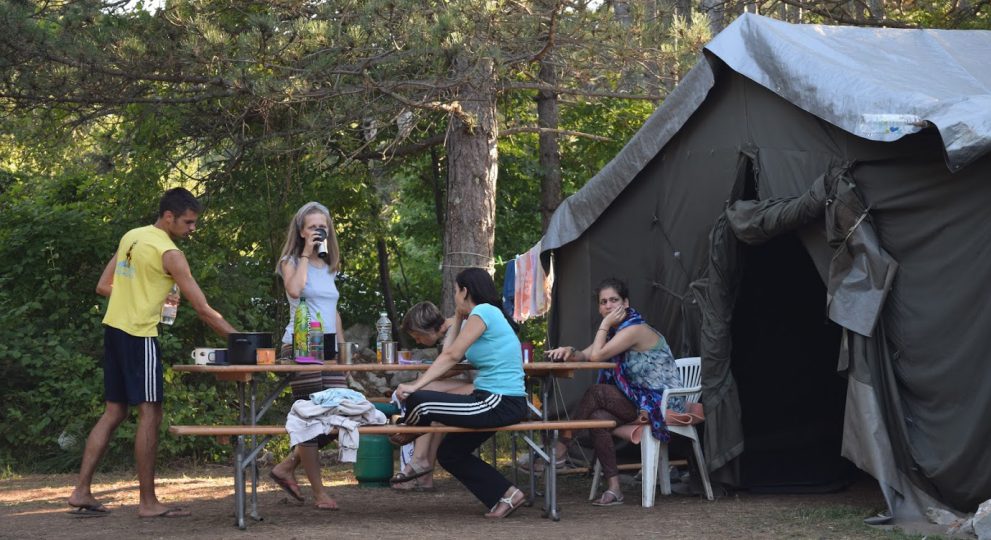 How can I get to the Camp?
Travelling by public transport
How can I get to the Camp?
Travelling by public transport
- We can pick you up by car from Sveta Jelena or Mošćenička Draga during our midday break (11:30-15:30) on a Tuesday or Saturday. There are regular busses from Pula and Rijeka which can take you to one of these listed places. It’s important for us to know the exact time and place of your arrival in order to plan our day. If you arrive before or after the midday break you might have to wait, sometimes for quite a while, until we have time to pick you up.
- If you are travelling from Brseč, you need to turn left at Sveta Jelena to follow cycle route no. 8 (marked by signposts biciklistička staza br. 8) uphill. This left turning is just before the restaurant Konoba Slamnjaki, so if you see it on your left you have missed the turn.
- If you are travelling from Mošćenička Draga, the turn will be on your right just after the restaurant Konoba Slamnjaki, following the cycle route no. 8 (marked by signposts biciklistička staza br. 8) uphill.
- At the first fork in the road turn right, still following the signpost for biciklistička staza br. 8.
- At the second fork turn left onto a white gravel track, still following the signpost for biciklistička staza br. 8.
- At the third fork, continue straight. DO NOT follow the signpost for biciklistička staza br. 8, which goes right.
- The Camp is on the right, look out for tents and parked cars.
- Hiking can be a nice way to see the Nature Park, but make sure ou come prepared for steep hills and hot weather!
- We recommend travelling by bus to a nearby town such as Sveta Jelena, Brseč, or Mošćenička Draga, then hiking from there. Please let us know what time you intend to arrive at the Camp so we can expect you.
